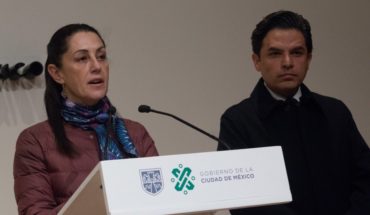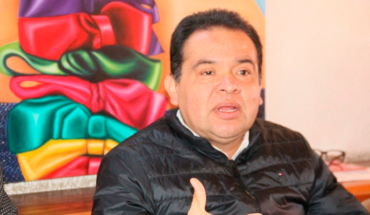There are three articles generally adopted by this Commission. The vote on indications is missing before the Plenary of the Constitutional Convention (CC) discusses them and votes, some clarifications and risks of the known text.
Establish Health as an inalienable social, community and human right, including its physical, mental and spiritual dimension; define the responsibility of the State to effectively guarantee access to a Single and Universal Health System, of a solidary, equitable, participatory nature, with a gender, intercultural, decentralized approach and articulated from the municipal territory and that is based on the prevention and promotion of health, respect for sexual, reproductive and gender rights; that grants dignified treatment for good living and humanized death, are accepted principles in the country, but “the guarantees that people will have so that these rights are fulfilled, mainly that of opportunity” are missed. The articles define a model of the health system in the Constitution and, in my opinion, four mistakes are made:
1.- The organization of the health system should not be in the Constitution; it must be defined by democratic legislative bodies and hopefully emerge as a state policy so that it remains and/or is changed when the system and society evolve. It is not good that the Constitution obliges a non-consensual model of organization, countries that have done so have ended up with very different systems and regulatory gaps that have caused serious problems.
2.- By defining in the Constitution a specific model of organization and financing, taking advantage of a circumstantial majority in the CC to impose one of the 3 or 4 alternatives that have been discussed in the country for 30 years and none of which has achieved majorities, it is possible to foresee – if this proposal is approved – that there will be a strong controversy and instability for the future of the system.
3.- The Constitution cannot respond to the multiple effects of a reform of this magnitude, which should be implemented in a mandatory manner and leaves many unresolved questions that generate uncertainty: does the proposed single health system constitute a state monopoly in the insurance and provision of services for the country?, what will happen to the 40% of Isapre members who have deficiencies and pre-existences when the Isapres system ends in one or two years?, what is the transition?, who will take care of this population? –Fonasa or the entity that replaces it, has 2.0 million people waiting for specialist care and 315,000 surgery, in 2020 more than 36 thousand people died on waiting lists and it is estimated that about 6 thousand non-GES patients and 750 GES have died from some cause associated with waiting-, Is there an estimate of the financial cost to the state as a result of this reform?; what will happen to the nearly 3.5 million of the population that use private clinics of different levels and with the 6.5 million that demand medical consultations and examinations?, Do we change by decree to the people their uses and customs?, Do we increase by decree the capacity of the public system to absorb the new additional demand?; in the last 10 years we have doubled the sectoral budget without increases in productivity; the 4 thousand private beds that exist in the country for profit (which contributed in pandemic more than 1000 ICU beds) and that could not and / or would not want to integrate the single health system, are they allowed to continue existing or will they have to close or will they be expropriated?, What is the cost for the country to dispense with this infrastructure or acquire it?, Are there resources to solve this loss and its replacement?, what happens to the employment of the thousands of workers in this sector?, does the new system allow the free exercise of the profession of medicine and the practical possibility of a second opinion always valued by patients?, under what conditions will doctors work?; Would the Fonasa model of free choice be maintained or only the state institutional attention?
4.- The transitory article gives one year to have installed and functioning the single health system and a period of 2 years for the integration of the institutional hospitals of the armed forces and mutual societies, without taking into account that these processes are much longer and require a thorough design of a transition.
This set of questions cannot be resolved in the Constitution and less in the deadlines that exist and, if it is approved in the way in which the There are two risks in the proposal: either that it remains on paper when the legislator realizes that many of the proposed changes are not feasible and less in the deadlines proposed or that, alternatively, it is implemented as it gives rise and we have a new Transantiago.
If you want to write a Constitution for all Chileans, you cannot impose on this one only a vision on a fundamental right, taking advantage of an occasional majority in the CC, which is unique and has not been repeated in subsequent elections and, therefore, will not have public support for the multiple doubts and effects that arise. It is best to refine the wording of all the principles that we want to remain in the Constitution and leave it to the legislator to address the aspects of implementation, organization and financing.
The content expressed in this opinion column is the sole responsibility of its author, and does not necessarily reflect the editorial line or position of El Mostrador.





